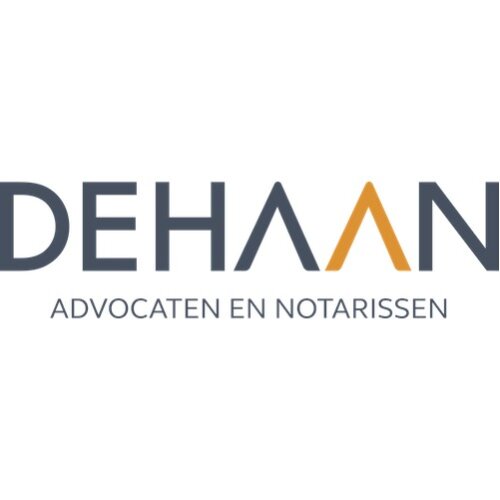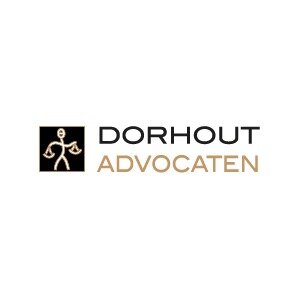Best Energy, Environment & ESG Lawyers in Groningen
Share your needs with us, get contacted by law firms.
Free. Takes 2 min.
List of the best lawyers in Groningen, Netherlands
About Energy, Environment & ESG Law in Groningen, Netherlands
Groningen is a vibrant region in the Netherlands that plays a significant role in the country’s energy landscape. It is renowned for its natural gas reserves but is also transitioning towards sustainable energy sources such as wind, solar, and biomass. With this backdrop, Energy, Environment, and ESG (Environmental, Social, and Governance) law has become increasingly important. This area of law involves regulations on energy production and distribution, environmental protection measures, climate adaptation strategies, and frameworks to ensure organizations operate responsibly and sustainably. Key regulations come from both Dutch national law and EU directives, all of which aim to safeguard the environment and promote ethical business practices in energy and related industries.
Why You May Need a Lawyer
Individuals and businesses may need an Energy, Environment, and ESG lawyer in Groningen for several reasons. Common situations include:
- Starting or expanding energy generation projects, such as wind or solar farms
- Securing permits and licenses for energy projects
- Dealing with local environmental regulations, especially in sensitive areas
- Understanding or disputing natural gas extraction rules and their environmental impact
- Addressing compliance with EU and Dutch ESG regulations and reporting requirements
- Resolving disputes with government authorities over emissions, pollution, or land use
- Navigating liability issues related to environmental damage or contamination
- Advising on corporate sustainability strategies and risk management
- Helping communities affected by energy or environmental projects to defend their interests
- Participating in public consultations or objecting to plans that could affect the environment or local residents
Local Laws Overview
Groningen’s legal landscape is influenced by national Dutch law, with additional local rules and procedures. Key aspects to consider:
- The Dutch Environmental Management Act (Wet milieubeheer) serves as a foundation for permits, regulations, and government action on environmental protection.
- The Spatial Planning Act (Wet ruimtelijke ordening) is crucial for determining land use in relation to energy projects and environmental conservation.
- The Mining Act (Mijnbouwwet) governs natural gas extraction activities, particularly relevant to Groningen’s history with gas fields and associated induced earthquakes.
- Climate and Energy Transition policies, under both Dutch initiatives and EU directives, are influential in shaping renewable energy requirements and the phasing out of fossil fuels.
- Environmental Impact Assessments (EIAs) may be required for large projects, analyzing their potential effects on soil, water, air, and biodiversity.
- ESG reporting and compliance is becoming a legal obligation for larger companies, as outlined by recent EU legislation, such as the Corporate Sustainability Reporting Directive (CSRD).
- Local municipalities may enforce additional rules or zoning plans that impact project approval and community consultation.
Frequently Asked Questions
What is ESG and why does it matter in Groningen?
ESG stands for Environmental, Social, and Governance. It refers to standards for business operations that respect the environment, uphold social responsibility, and follow ethical management. In Groningen, ESG is increasingly important due to government regulations and societal demand for cleaner energy and responsible business practices.
Do I need a permit to start a renewable energy project in Groningen?
Yes, most renewable energy projects require permits from local or national authorities. The type and complexity of permits depend on the size and impact of the project. Consult with a specialist early to understand required procedures.
What are the main environmental regulations affecting businesses in Groningen?
Businesses in Groningen must comply with laws such as the Environmental Management Act, emission guidelines, waste disposal rules, and nature protection legislation. EU directives also influence Dutch national law, especially on topics like climate change and renewable energy.
How are local communities involved in energy projects?
Local communities are often consulted during the planning phase of energy projects. Public hearings and objections are part of the permit process, allowing residents to voice concerns or suggestions.
What should I do if I am affected by environmental pollution?
If you are impacted by environmental pollution, report the issue to your local municipality or the national environmental authority. A lawyer can assess your rights and help you seek remediation or compensation.
Are there additional obligations for companies around ESG reporting?
Larger companies in the Netherlands, including those operating in Groningen, are increasingly required by EU law to report on ESG performance. The details depend on company size and sector.
What happens if my company is not compliant with environmental laws?
Non-compliance can lead to fines, enforcement measures, permit revocation, or even criminal prosecution for severe violations. Proactive legal advice can help minimize risk and address issues before they escalate.
How are gas extraction and earthquakes regulated in Groningen?
The Dutch government strictly limits gas extraction in Groningen due to induced earthquakes. The Mining Act and special regulations set the conditions and responsibilities for companies and compensation for affected citizens.
Can individuals or NGOs challenge energy or environmental decisions?
Yes, individuals and NGOs can challenge decisions through administrative objection procedures and, if necessary, appeal to administrative courts.
What types of legal disputes are common in this field in Groningen?
Disputes often arise over permits, zoning, environmental damage, compensation for induced earthquakes, and non-compliance with ESG or environmental standards.
Additional Resources
Several organizations and authorities in Groningen and the Netherlands offer support and information regarding Energy, Environment, and ESG issues:
- Gemeente Groningen - Local municipality for permits and zoning issues
- Rijksdienst voor Ondernemend Nederland (RVO) - National agency for business permits and subsidies
- Inspectie Leefomgeving en Transport (ILT) - Supervises environmental compliance
- Staatstoezicht op de Mijnen (SodM) - Regulator for mining and gas extraction
- Milieudefensie - Environmental NGO advocating for local and national issues
- Nederlandse Vereniging van Milieurecht Advocaten - Dutch Association of Environmental Law Lawyers
Next Steps
If you are seeking legal assistance with an Energy, Environment, or ESG matter in Groningen, consider the following steps:
- Define the nature of your issue or project clearly
- Gather relevant documentation, permits, correspondence, and evidence
- Research or consult with a specialized legal advisor experienced in Dutch and local Groningen regulations
- Reach out to local organizations for guidance or mediation
- Discuss potential courses of action, including negotiations, objections, or legal proceedings with your lawyer
- Stay informed about procedural deadlines and requirements, particularly if public consultations or objections are involved
Engaging a specialist early can help ensure compliance, smooth project development, and effective protection of your interests, whether you are a business, resident, or community organization.
Lawzana helps you find the best lawyers and law firms in Groningen through a curated and pre-screened list of qualified legal professionals. Our platform offers rankings and detailed profiles of attorneys and law firms, allowing you to compare based on practice areas, including Energy, Environment & ESG, experience, and client feedback.
Each profile includes a description of the firm's areas of practice, client reviews, team members and partners, year of establishment, spoken languages, office locations, contact information, social media presence, and any published articles or resources. Most firms on our platform speak English and are experienced in both local and international legal matters.
Get a quote from top-rated law firms in Groningen, Netherlands — quickly, securely, and without unnecessary hassle.
Disclaimer:
The information provided on this page is for general informational purposes only and does not constitute legal advice. While we strive to ensure the accuracy and relevance of the content, legal information may change over time, and interpretations of the law can vary. You should always consult with a qualified legal professional for advice specific to your situation.
We disclaim all liability for actions taken or not taken based on the content of this page. If you believe any information is incorrect or outdated, please contact us, and we will review and update it where appropriate.
Browse energy, environment & esg law firms by service in Groningen, Netherlands
Groningen, Netherlands Attorneys in related practice areas.











